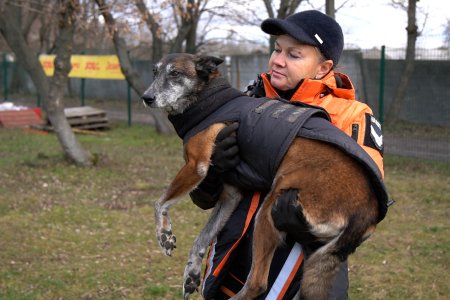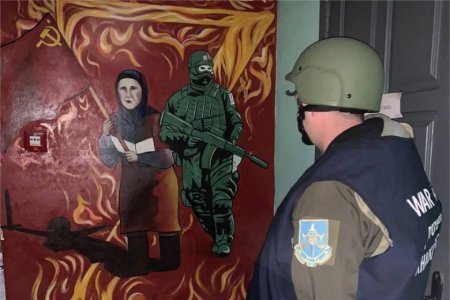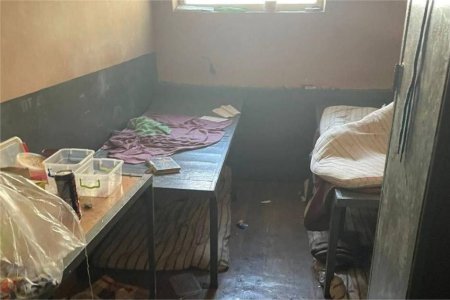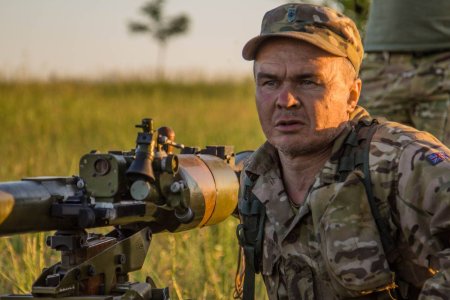I am Vakulenko Antonina Mykolaivna; I am 50 years old and a resident of the village of Velyka Dymerka, Brovarsky district, Kyiv Region. I have lived here since birth and have a 30-year-old disabled son. I am a housewife, and before the war, we did our household chores and lived well with no grievances until these “liberators” came.
What was the first day of the full-scale invasion of the Russian Federation on 24 February 2022 for you?
I simply couldn’t believe that this could happen in the 21st century. It is nonsense. Many said a full-scale war could begin, but I did not believe it. It was a shock. I didn’t know what would happen tomorrow and was not sure it was true. But I had to survive, albeit it was hard. We have relatives in Russia, but they do not understand us. And we, in turn, realized that they never were real relatives. They said it was all for our good.
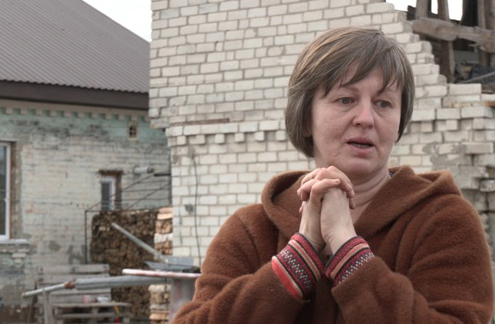
When my house was bombed, I showed them photographs, said that you visited every summer, and now you must liberate me. Did I ask you for this? Who harassed you here? After all, you came to us as dear guests. And now what? I could not wrap my head around it — just awful.
Has your attitude towards Russians changed?
Very much so! For me, they no longer exist. Russia no longer exists, as well as relatives from there. “I have nothing to do with it” is not an answer or an excuse. Why, knowing that we are dying here, are they silent? This is incomprehensible to the mind. I don’t understand these people. Once, I planned to go to Russia because my relatives were there, but now I generally want to forget that such a country exists. They brought us so much grief...
What happened to you in the first days of the war?
Somewhere on the sixth of March, the shelling began, and on the eighth, it intensified, but then we still thought: maybe it would blow over. On 12 March, for the first time, we saw the Russian military drive right down our street, past our house. And it was not the most pleasant meeting, and we were afraid because they were not peacefully inclined. We began to hide, tried not to be seen, not to go anywhere, and everyone sat at home.
We heard loud explosions. The 14 March was the worst. Everything around was exploding.
It’s good that we managed to escape from our home. Perhaps the Lord saved us, definitely saved! And then we did not leave the cellar, from the fourteenth to the twenty-first of March, until the very evacuation we did not go out. It was frosty and so cold in the cellar that our teeth chattered. Terribly cold!
What happened to you and Velyka Dymerka in general during the occupation?
Explosions were constantly heard, and something was always burning somewhere. In general, there was a feeling that the whole Dymerka was on fire, and the shelling was so powerful. Russians in armored vehicles often drove past our house. We were terrified that they would get into the cellar because among us were both men and young women. But God had mercy, and they did not come to us. As soon as we were given a green corridor, we rushed out of the cellar, grabbed some things, and hurried to leave.
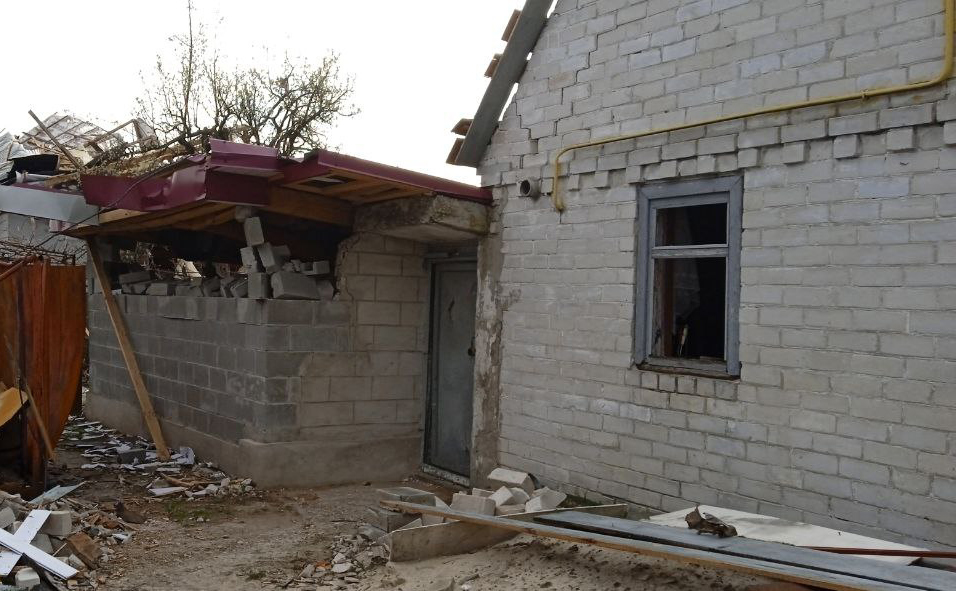
What did you eat when you hid in the cellar?
We are thrifty people and have stocks. There was water in the well, cereal, and so on...
Do you know about Russian war crimes against civilians in Velyka Dymerka?
Yes, they shot people who went out into the street and cars with people. But we did not go out; we sat in the cellar so as not to endanger ourselves. We had no contact with them.
Did the Russian military loot Velyka Dymerka?
They broke into prosperous houses, took everything out, or destroyed things: for example, at my friend’s house, they shot the walls and broke the furniture. Well, why? They shot the dogs and laid them out on the beds. I just don’t want to remember all these horrors.
When was your home damaged?
It happened on 14 March at 9:30 am. For about three days, the Russians shelled us very hard. As per the schedule: the shelling started at half past ten and continued until around 15:00. For three days, they didn’t stop until they saw the houses were on fire.
How was your home damaged?
Well, I’m still lucky. At least the walls in the house survived. Of course, there was damage inside, windows were shattered from the shock wave, the roof was badly damaged, and the house itself literally jumped from the explosions. Even in the cellar, we felt like we were amidst an earthquake. My house is standing, but it is not the former fortress. But at least I have somewhere to return, while many homes are completely destroyed.
What precisely of your property was damaged?
The shed, summer kitchen, and even a solid concrete cellar were all destroyed. We once could not pull these structures with a cargo crane, but everything moved from the shock wave. The fence is damaged, the greenhouse, a lot of things.
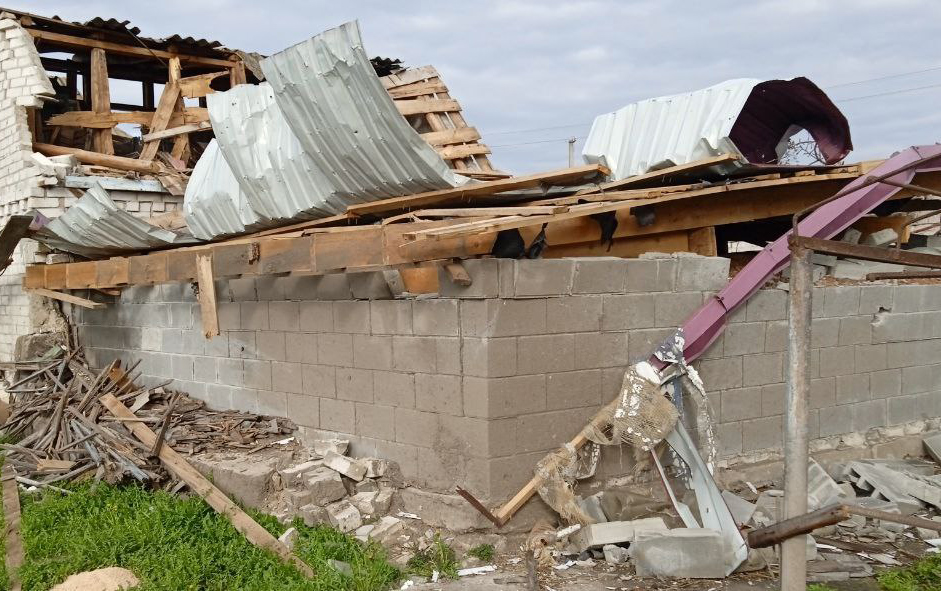
How did you manage to evacuate?
We were given a green corridor. At first, there was one corridor, but we did not leave; we were waiting for something. We left when our house was damaged: there was nowhere to live, and the children had to be saved. There were flights every day. For example, on 14 March, when there was shelling, a neighbor ran to his neighbor Aunt Vera and began to shout for her to save herself, but he died from a shrapnel wound to the head. So he lay on the street until the village was liberated. They said that the Russians planted a grenade under him. I also know that two elderly people died.
Why didn’t you evacuate immediately?
I did not want to leave the house and go somewhere. Who needs me? But it turned out that it was not so. We were wanted. For example, I ended up with my children in the Volyn region. I wanted to cry with joy. They gave me a second life. They supported and reassured us. We were very fortunate in this respect.
Is there any help from the state and volunteers?
Lots of volunteers. Alina Shaternikova from the World of Boxing organization helped me. The roof and windows were installed for us so that we could live in the house. If not for them, we would have wandered somewhere. Other funds helped too.
What are you planning to do next?
Live, work, and wait for the peace. Life goes on. We were afraid of winter, and now there is no fear anymore in spring. After all, they won’t kill everyone; someone will still be here ... It’s hard to defeat us, and we are no longer afraid of anything. Air raid alerts sound, and we keep working. We will rebuild everything even better if only there is peace.
Do you remember your emotions when you found out about the release of Velyka Dymerka?
It was wonderful! But this is a drop in the ocean. However, when the war ends... In the meantime, this does not change anything. Yes, Dymerka has been liberated, but at the same time, how many Dymerka guys are dying in the war? The war has touched every family, and it is tough for us. Much harder than all this devastation. After all, death is the worst thing. Everything else can be restored, but life cannot be returned.
Despite everything, do you believe that everything will work out?
I think — yes. We trust God, and we believe that all this will end. But I definitely don’t want to hear about Russia anymore. Neither hear nor see these “liberators”. Let them free themselves, but do not intrude here. No one has ever asked for this and never will. And for those who ask, let them pack bags and leave if they do not like Ukraine.
